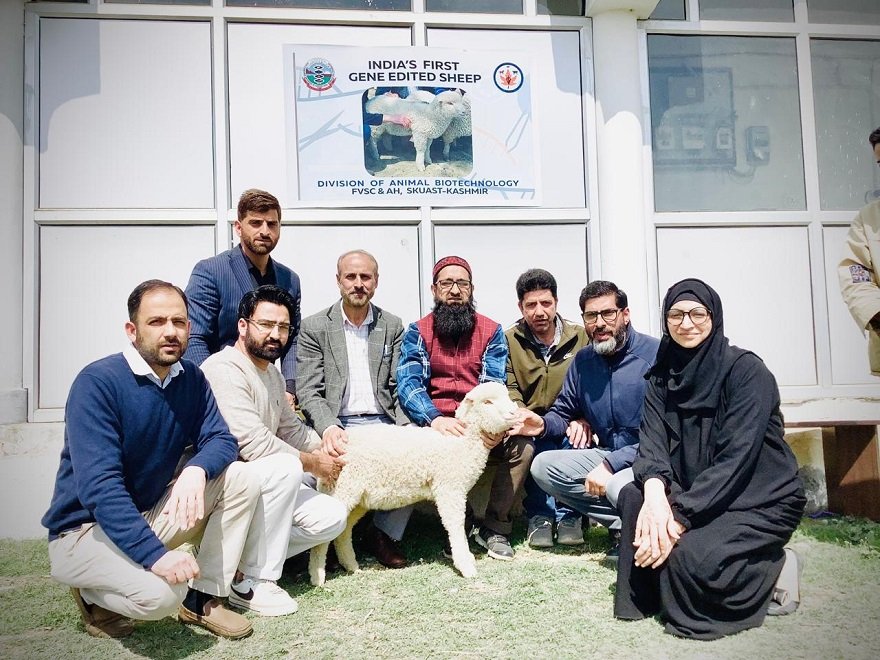India achieves first gene-edited sheep breakthrough at SKUAST, Kashmir
In a landmark scientific breakthrough, researchers at a university in Kashmir have successfully developed India’s first gene-edited sheep. The achievement, hailed as a major advancement in animal biotechnology, was announced by Sher-e-Kashmir University of Agricultural Sciences and Technology (SKUAST). The gene-edited sheep contains no foreign DNA, setting it apart from transgenic animals and aligning it with India’s emerging biotech regulatory framework—potentially easing the path to approval
In a major leap for Indian biotechnology, researchers at Sher-e-Kashmir University of Agricultural Sciences and Technology (SKUAST-Kashmir) have developed the country’s first gene-edited sheep using CRISPR-Cas9 technology. The project, led by Prof. Riaz Ahmad Shah, Dean of Veterinary Sciences, took nearly four years and follows the team’s earlier success with India’s first cloned Pashmina goat, Noori, in 2012.
The lamb was genetically modified by targeting the myostatin gene, which regulates muscle growth. As a result, the animal exhibits about 30 per cent more muscle mass—a trait found in European breeds like Texel but previously absent in Indian sheep. This gene modification, achieved without introducing foreign DNA, positions the lamb outside the transgenic category and in line with global biosafety standards, making it more acceptable under India’s evolving biotech regulations.
Calling the development “a technological leap,” Prof. Shah compared it to the transformative impact of artificial intelligence. He noted that similar genome editing has been carried out in the US, China, and the EU.
SKUAST-K Vice-Chancellor Nazir Ahmad Ganai hailed the development as a turning point for livestock genetics in India. “This marks not just the birth of a lamb, but the beginning of a new era in genetic precision breeding,” he said, emphasizing its role in food security, sustainability, and the bio-economy.
The achievement follows the recent release of India’s first gene-edited rice variety and underscores the growing role of advanced genomic science in shaping India’s agricultural future. SKUAST-Kashmir now aims to establish the country’s leading reproductive biotechnology facility, blending cutting-edge research with practical agricultural innovation.
In a landmark scientific breakthrough, researchers at



